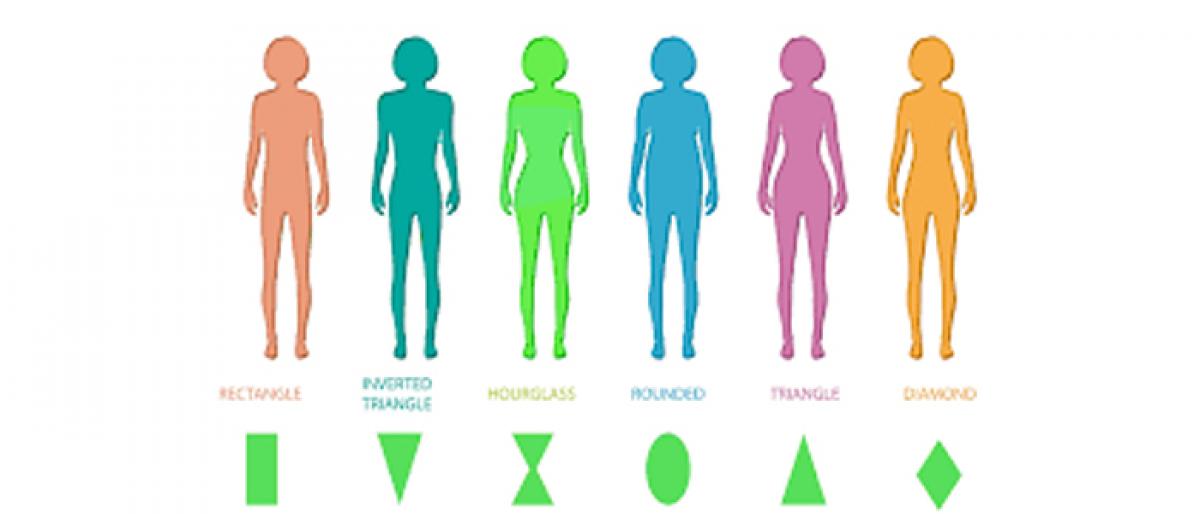Live
- NDMC Vice Chairman hits out at AAP's registration drive; labels it 'election gimmick'
- No place for Stokes as Root returns to England’s squad for India ODIs and Champions Trophy
- Kuwait bestows its highest honour 'The Order of Mubarak Al Kabeer' to PM Modi
- Kia to launch compact SUV 'Syros' in India next year
- Completely disagree: Swami Rambhadracharya on Mohan Bhagwat's 'Hindu leaders' remarks
- ISL 2024-25: NorthEast United aim to regain form against struggling Hyderabad
- CII seeks priority sector lending for new and emerging sectors
- Russia's missing An-2 plane found, all aboard alive
- GST recommendations to create business-friendly environment, ensure fairness: Experts
- Army pays tribute to first informant of 1999 Kargil intrusion Tashi Namgyal
Just In

People tend to judge a book by its cover, as they analyse the first impressions of others personality, which may depend, at least in part, on their body shape According to research published in Psychological Science, a journal of the Association for Psychological Science, people infer a wide range of personality traits just by looking at the physical features of a particular body
Washington: People tend to judge a book by its cover, as they analyse the first impressions of others’ personality, which may depend, at least in part, on their body shape. According to research published in Psychological Science, a journal of the Association for Psychological Science, people infer a wide range of personality traits just by looking at the physical features of a particular body.
“Stereotypes based on body shape can contribute to how we judge and interact with new acquaintances and strangers. Understanding these biases is important for considering how we form first impressions,” said scientist Ying Hu of the University of Texas at Dallas, who is also the first author on the research.
Hu and other researchers created 140 realistic body models, of which 70 were female and 70 male. The three-dimensional renderings were generated from random values along 10 different body dimensions, using data from laser scans of actual human bodies. Using these models allowed the researchers to know the precise physical measurements of each body shown in the study.
“We wanted to know whether we could link personality descriptor words to body shape in predictable ways,” explained Hu. “That is, do people look at a person’s body and make snap judgments about whether the person is lazy, enthusiastic, or irritable?”
A total of 76 undergraduate participants viewed a set of models — they saw each body from two angles and indicated whether 30 trait words shown on screen applied to that body. The trait words reflected dimensions of the Big Five personality traits (a common measure of personality used in psychology research) typically seen as positive (e.g., enthusiastic, extroverted, dominant) or negative (e.g., quiet, reserved, shy).
The researchers analysed whether participants consistently associated specific traits with certain types of bodies. Generally, participants judged heavier bodies as being associated with more negative traits, such as being lazy and careless; they judged lighter bodies as having more positive traits, such as being self-confident and enthusiastic.
Furthermore, the participants perceived classically feminine (e.g., pear-shaped) and classically masculine (e.g., broad-shouldered) bodies as being associated with “active” traits, such as being quarrelsome, extraverted, and irritable. Male and female bodies that were more rectangular, on the other hand, were associated with relatively passive traits, such as being trustworthy, shy, dependable, and warm.
In an additional analysis, the researchers found that they could reliably predict personality trait judgments from specific combinations of different body shape features. “To our knowledge, this is the first study to consider the role of more nuanced aspects of body shape — beyond height and weight — in personality judgments about people,” says Alice O’Toole, coauthor, and professor of the University of Texas at Dallas.
The tendency to infer personality traits from body shape is likely universal, the authors argue, but they note that the exact inferences people make will vary according to their culture, ethnicity, and even age. And it remains to be seen how other characteristics, such as attractiveness or gender, interact with body shape to influence the inferences that people make.

© 2024 Hyderabad Media House Limited/The Hans India. All rights reserved. Powered by hocalwire.com







